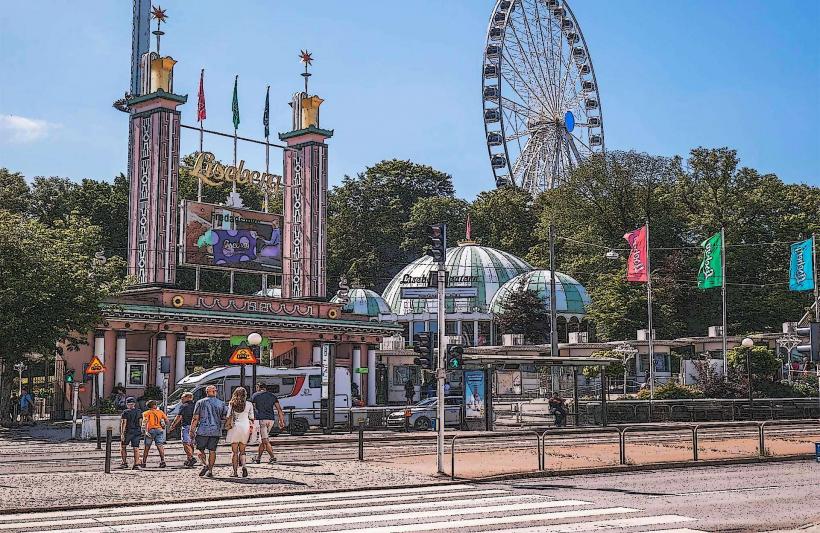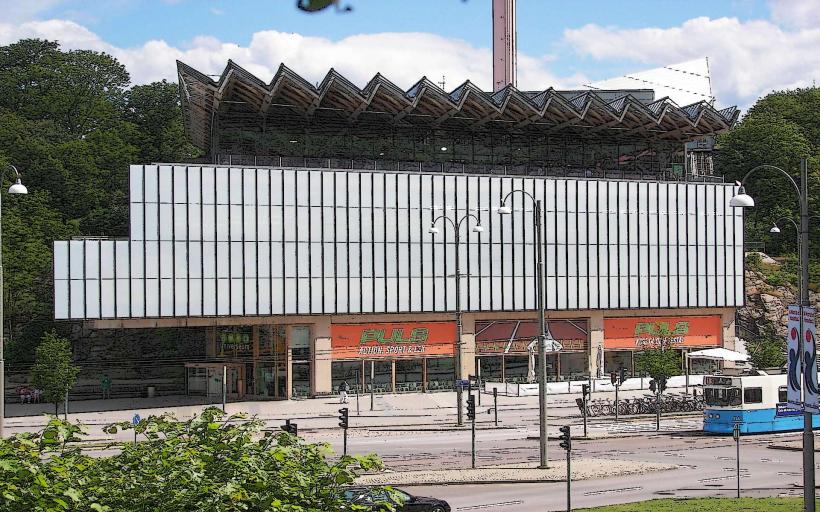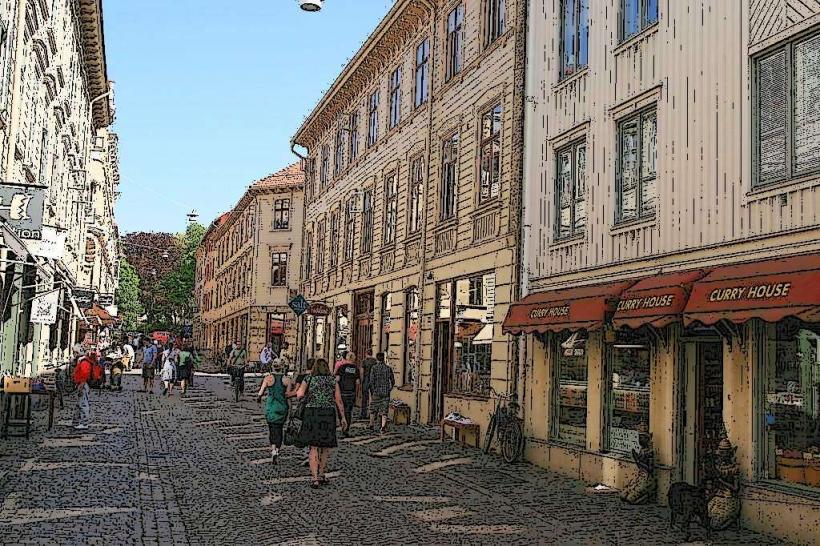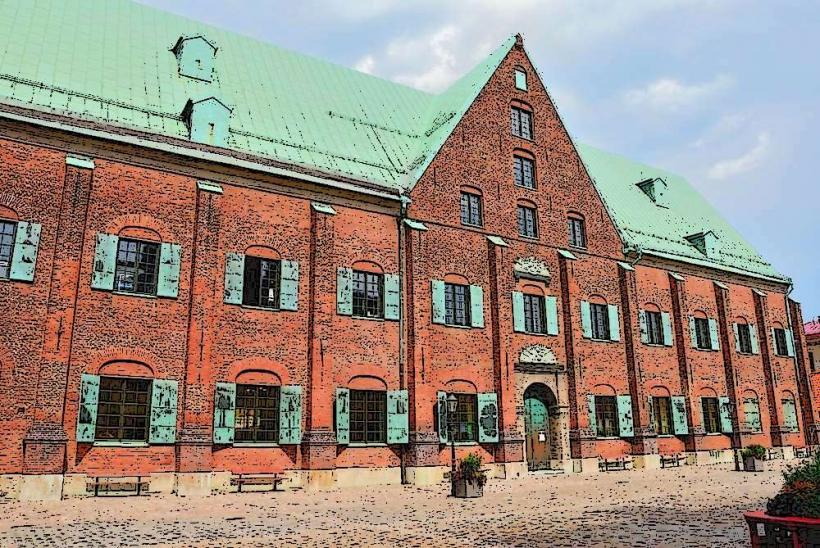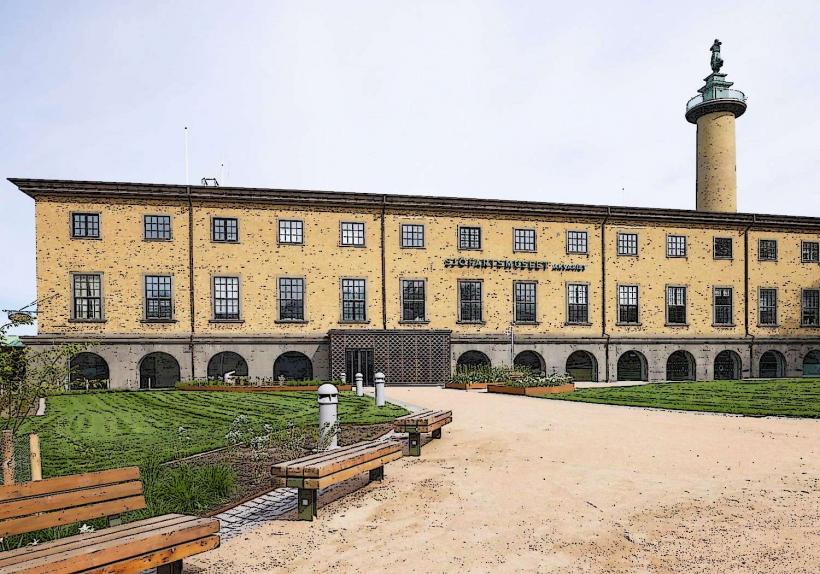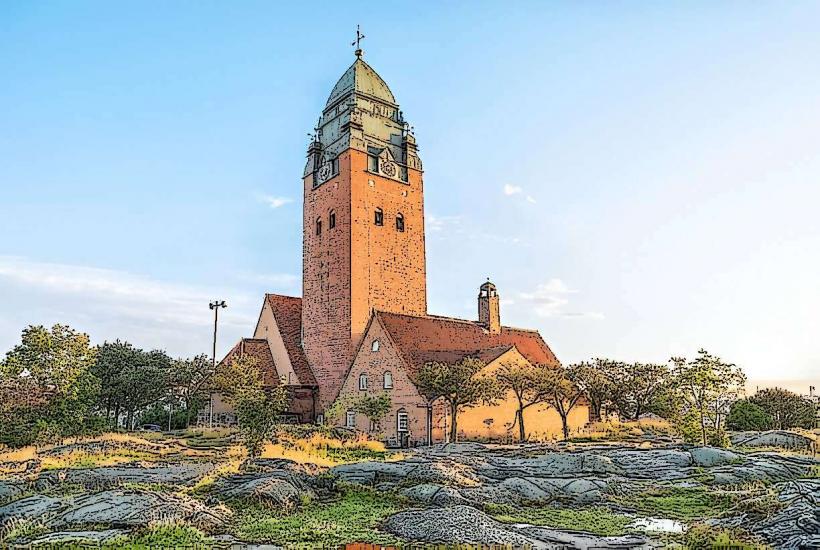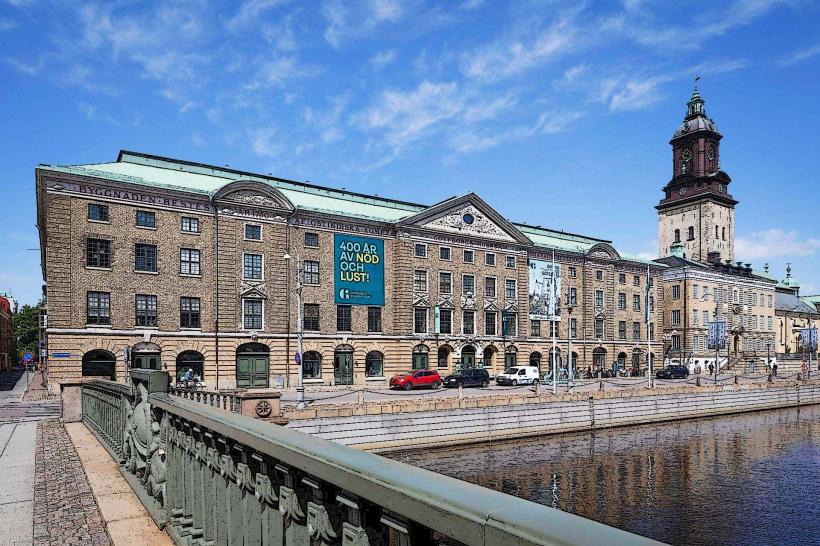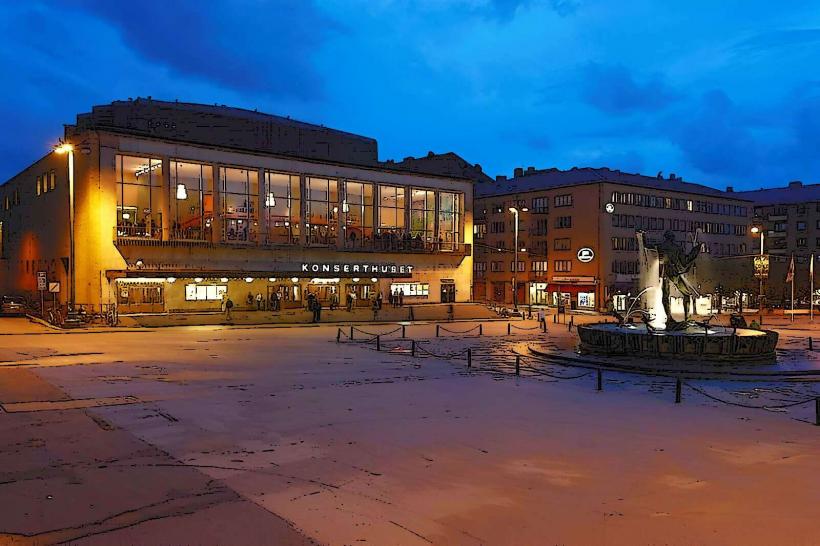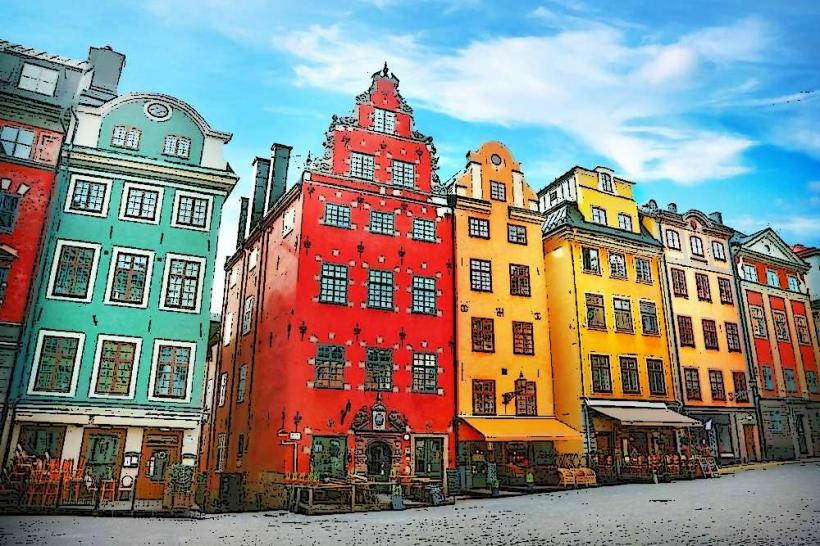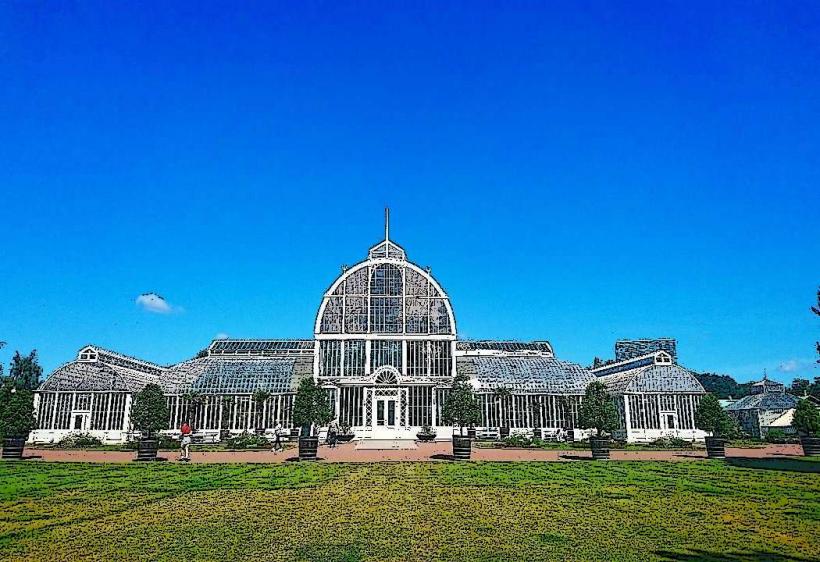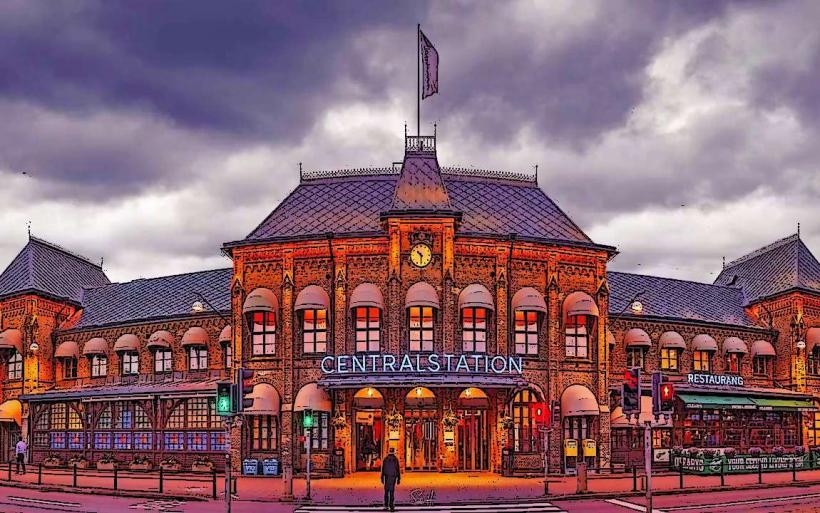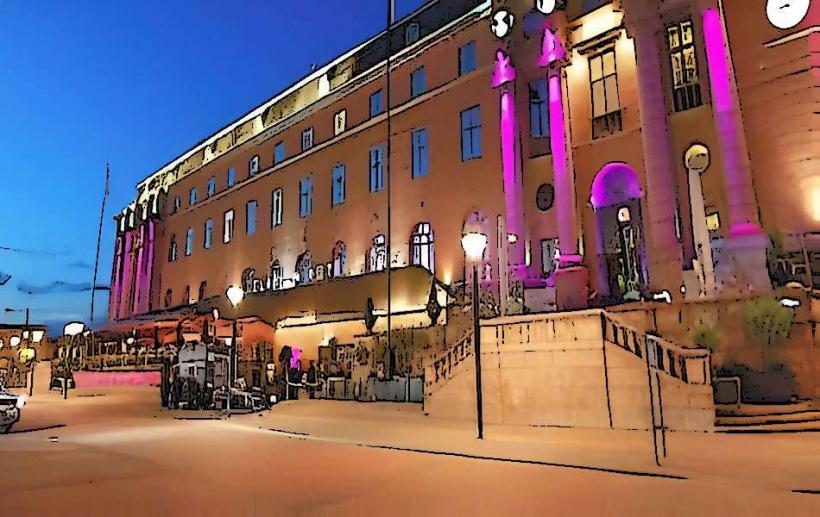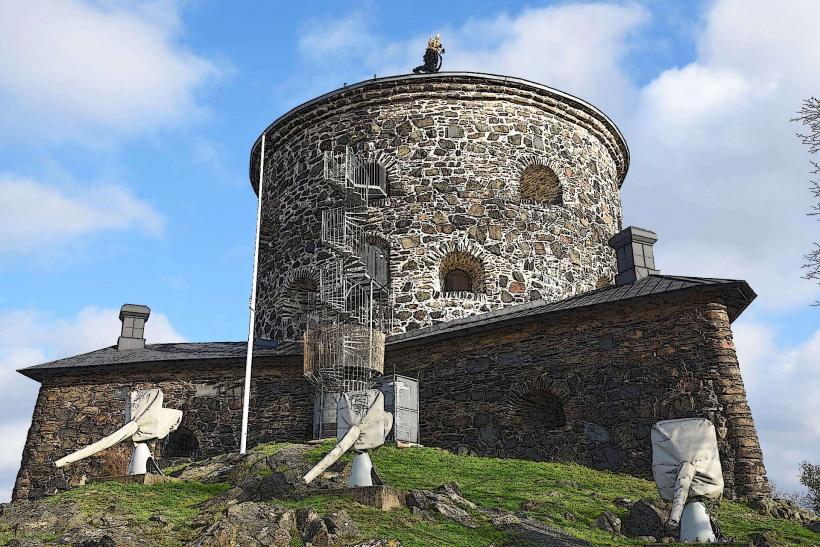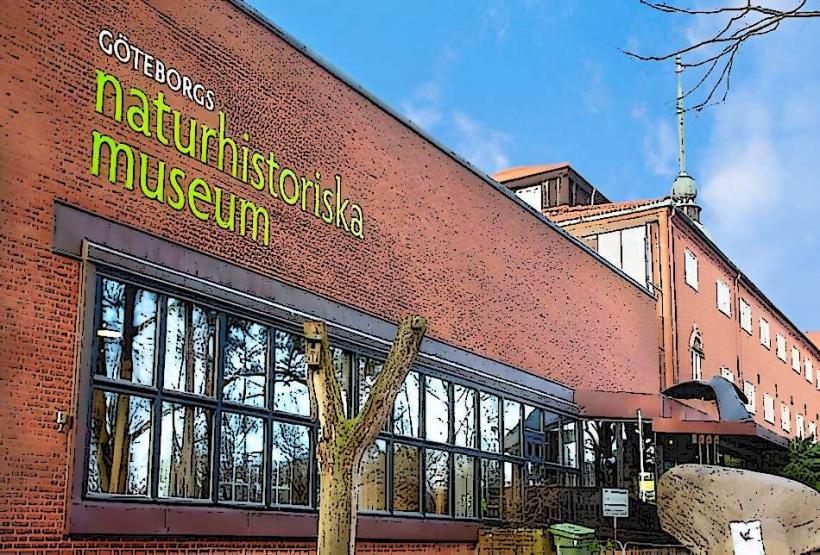Information
Landmark: Gunnebo House and GardensCity: Gothenburg
Country: Sweden
Continent: Europe
Gunnebo House and Gardens, Gothenburg, Sweden, Europe
Gunnebo House and Gardens (Gunnebo Slott och Trädgårdar) is a historical mansion located just outside Gothenburg, Sweden. Set in a beautifully landscaped park, this property offers a unique glimpse into 18th-century Swedish aristocratic life. Gunnebo House is not only a well-preserved example of neoclassical architecture but also features meticulously restored gardens and a park that reflects the influence of European garden design.
1. Overview of Gunnebo House and Gardens
Location: Gunnebo House is located approximately 10 kilometers south of Gothenburg, in the area of Mölndal. It is easily accessible by public transport or car from the city center, making it a popular day trip destination for locals and visitors alike.
History: The estate was built between 1784 and 1790 for the wealthy merchant John Hall, who wanted to create a country retreat. The house and surrounding grounds were designed by the Swedish architect Carl Wilhelm Carlberg, with influences from neoclassical architecture and English garden design. Over the years, the estate has undergone several changes but has retained its historical charm.
Architectural Style: Gunnebo House is a stunning example of neoclassical architecture, with a symmetrical design and grand, classical columns. The house was designed to be both a functional residence and an elegant symbol of wealth and status. The interior features original period furnishings, intricate woodwork, and beautiful decorative elements, reflecting the tastes of the late 18th century.
2. The House
Main Building: The main building of Gunnebo House is a two-story mansion, with large windows and a well-proportioned facade. The ground floor was used for entertaining and social functions, while the upper floor served as private living quarters for the Hall family.
Interior Design: Inside the house, visitors can explore rooms that have been carefully preserved and restored to reflect their original state. The rooms are furnished with period pieces, including Swedish Rococo furniture, chandeliers, and fine art. The interiors offer a glimpse into the lives of the aristocracy during the late 18th century.
Rooms of Note:
- The Salon: This elegant room was designed for social gatherings and often hosted visitors. The large windows offer views of the gardens and surrounding countryside.
- The Dining Room: The dining room is furnished with a grand table and fine china, giving insight into the formal dining habits of the period.
- The Library: The library is a more intimate space filled with books and paintings, reflecting the intellectual life of the era.
3. Gardens and Park
The gardens and park surrounding Gunnebo House are one of its main attractions, showcasing a blend of formal gardens and English landscape gardening.
Formal Gardens: The formal gardens are designed with neat, symmetrical layouts and are planted with a variety of flowers, shrubs, and trees. These areas are meticulously maintained, giving visitors a taste of the grand gardens that were popular during the 18th century.
The Kitchen Garden: The estate includes a kitchen garden, which was historically used to grow vegetables and herbs for the household. Today, the garden is still cultivated using traditional methods and provides visitors with a chance to learn about historical horticulture.
The English Landscape Park: Beyond the formal gardens, the estate includes an expansive landscape park designed in the English style, with winding paths, ponds, and open lawns. The park offers stunning views of the surrounding countryside, providing a peaceful and scenic environment for visitors to explore.
The Orangery: One of the highlights of the gardens is the Orangery, a large building designed to house citrus trees during the winter months. It is now used as a cafe and a venue for events, offering a cozy space to relax while surrounded by lush greenery.
4. Visitor Experience
Guided Tours: Visitors can take guided tours of the house and gardens to learn more about the history of Gunnebo House, the Hall family, and the design of the estate. The tours provide in-depth knowledge about the architecture, the interior design, and the role of the estate in Swedish history.
Exhibitions and Events: Gunnebo House and Gardens also hosts a variety of temporary exhibitions that focus on art, history, and gardening. The estate is an important cultural venue, offering a wide range of events, such as classical music concerts, garden tours, and seasonal activities.
Seasonal Openings: The estate is open throughout the year, though the gardens and park are particularly beautiful during the spring and summer months. The winter months offer a chance to experience the house’s cozy interiors, decorated for the season.
Family Activities: The gardens and park are family-friendly, with plenty of space for children to play and explore. Additionally, the estate offers educational programs for children and families, such as workshops on gardening and nature.
5. Gunnebo Café and Restaurant
- The estate is home to a café and restaurant, offering visitors a chance to enjoy refreshments in a historic setting. The café serves a range of Swedish pastries, sandwiches, and hot drinks, and there is a restaurant that offers more substantial meals, often using ingredients from the estate’s gardens. Dining here provides a pleasant and relaxing way to enjoy the surroundings.
6. Cultural and Educational Programs
Workshops and Courses: Gunnebo House and Gardens is also a place for learning, offering various workshops on topics like gardening, landscape architecture, and historical cooking. These programs give participants the opportunity to engage directly with the estate’s history and its preservation efforts.
Educational Activities for Schools: The estate hosts educational programs for schools, which focus on the historical, environmental, and architectural aspects of Gunnebo House. These programs allow students to connect with Swedish history and culture in a hands-on way.
7. Accessibility
Public Transport: Gunnebo House and Gardens is easily reachable by public transport from Gothenburg. Visitors can take a bus or tram to the nearby stops and then enjoy a short walk to the estate.
Parking: There is ample parking available on-site for those arriving by car, making it convenient for visitors with personal transport.
Wheelchair Accessibility: The estate is generally accessible to those with limited mobility, with wheelchair-friendly paths and facilities.
8. Conclusion
Gunnebo House and Gardens is a must-visit for anyone interested in Swedish history, architecture, and horticulture. The combination of a well-preserved neoclassical mansion, exquisite gardens, and a rich cultural program makes it a unique destination near Gothenburg. Whether you’re interested in exploring the house’s elegant interiors, wandering through its stunning gardens, or enjoying a meal at the café, Gunnebo offers a peaceful and educational retreat into Sweden’s past.

